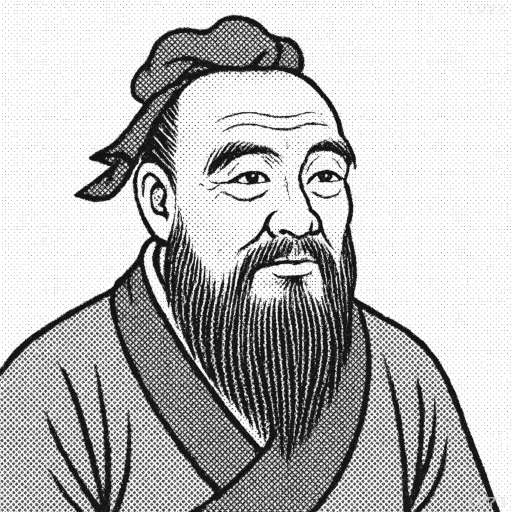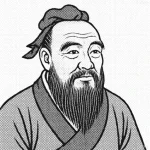“The superior man does not, even for the space of a single meal, act contrary to virtue. In moments of haste, he cleaves to it. In seasons of danger, he cleaves to it.”

- 551 BC – 479 BC
- Han ethnicity
- Philosopher, educator, politician
table of contents
Quote
“The superior man does not, even for the space of a single meal, act contrary to virtue. In moments of haste, he cleaves to it. In seasons of danger, he cleaves to it.”
Explanation
In this saying, Confucius emphasizes the unwavering commitment of the “superior man” to virtue, regardless of circumstances. True character, he suggests, is defined by a constant adherence to moral principles, not just when it’s convenient but especially during challenging times. Whether in moments of haste, when quick decisions may tempt one to act carelessly, or in times of danger, when self-preservation might take precedence, the superior person remains steadfast in virtue.
This teaching is deeply relevant in our lives, where pressures and temptations can test our integrity. For instance, in a high-stakes situation, a professional might be tempted to cut ethical corners to achieve faster results. Yet, a commitment to virtue means resisting this impulse, prioritizing honesty and accountability instead. Similarly, in times of personal crisis, the superior person remains committed to kindness, courage, and honesty, choosing actions that align with their values rather than reacting impulsively or selfishly.
Confucius’s words remind us that true virtue is unwavering. By consistently upholding our principles, we build a character that inspires trust and respect, providing us with inner strength and resilience. This commitment to virtue, especially in difficult moments, not only defines our integrity but also serves as a guiding light for others, fostering a life of honor, purpose, and lasting impact.
Would you like to share your impressions or related stories about this quote in the comments section?


